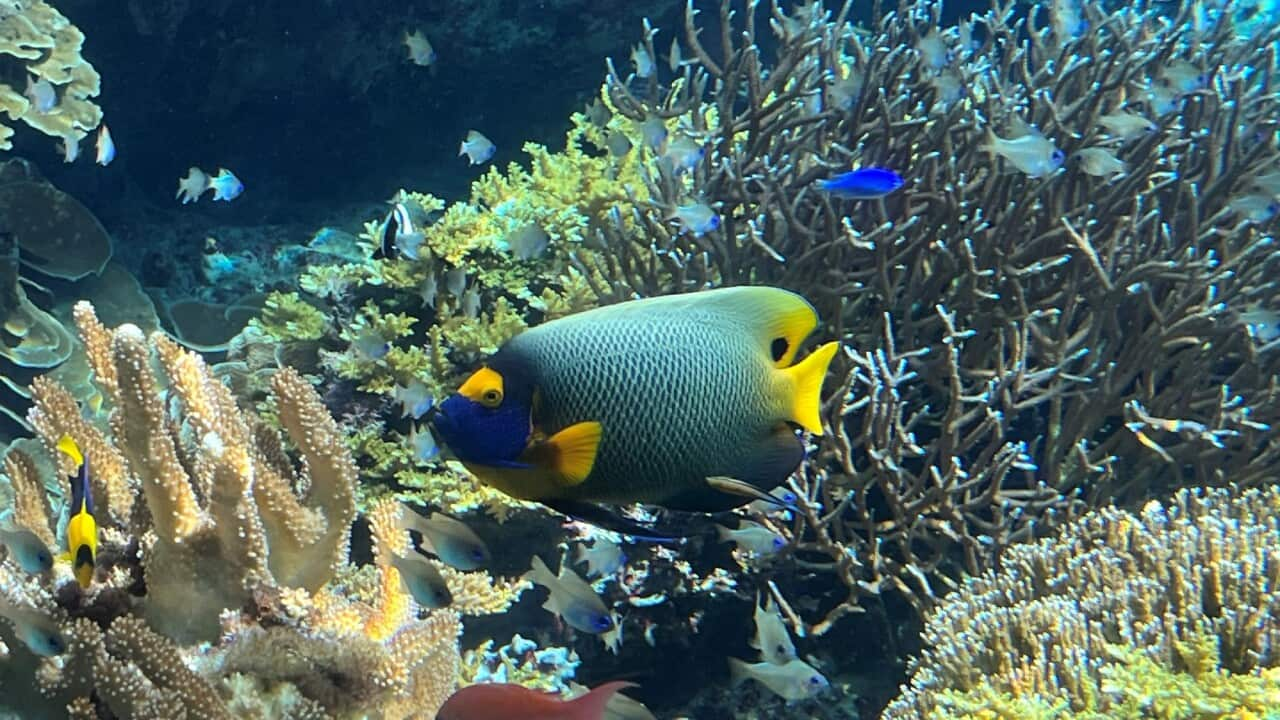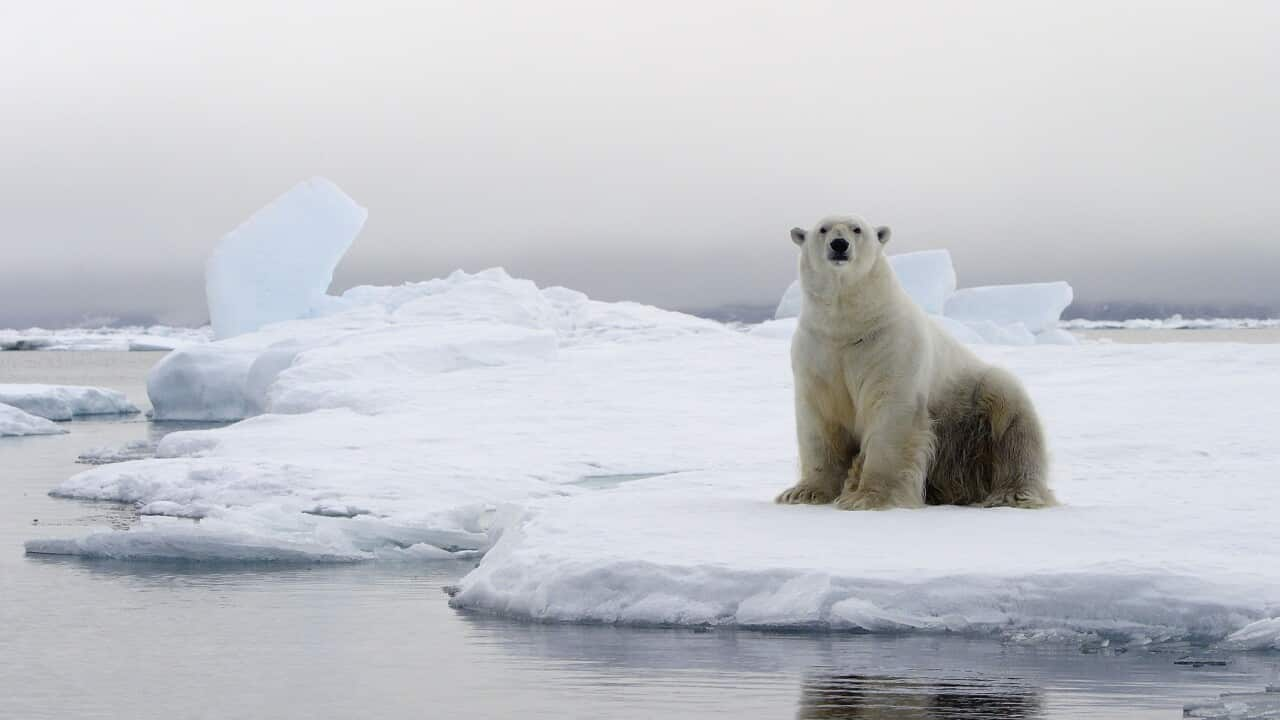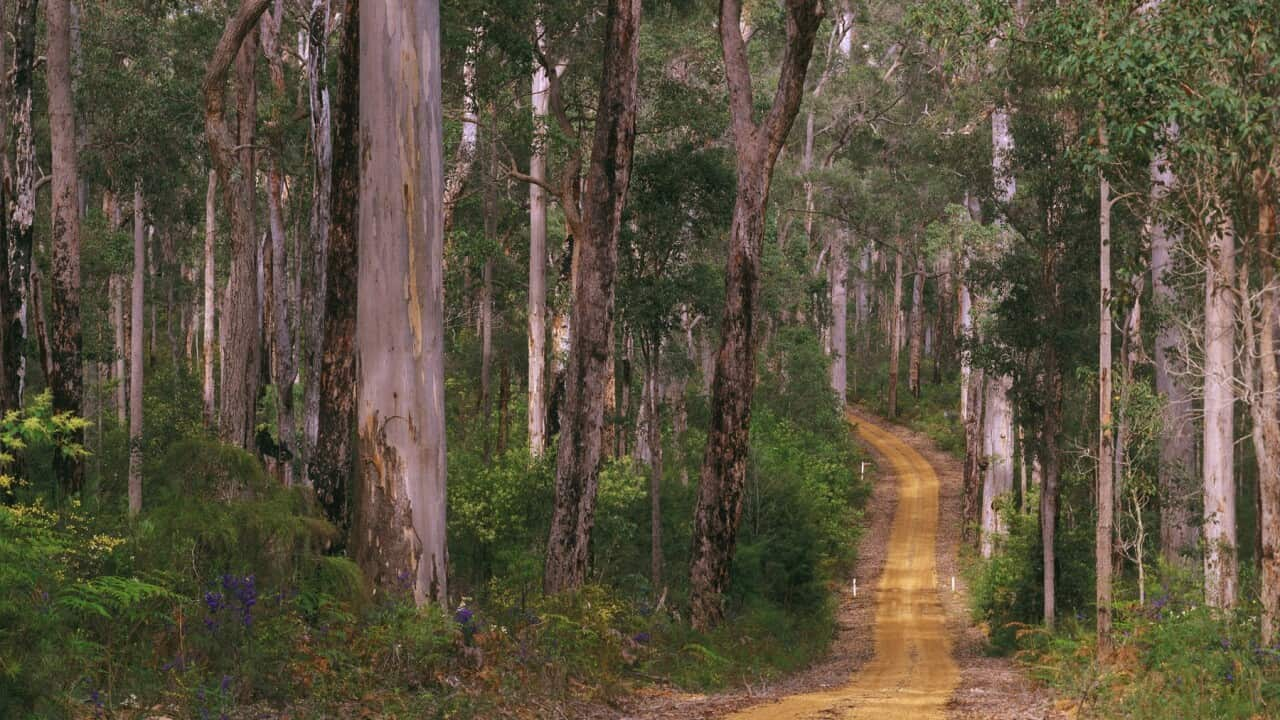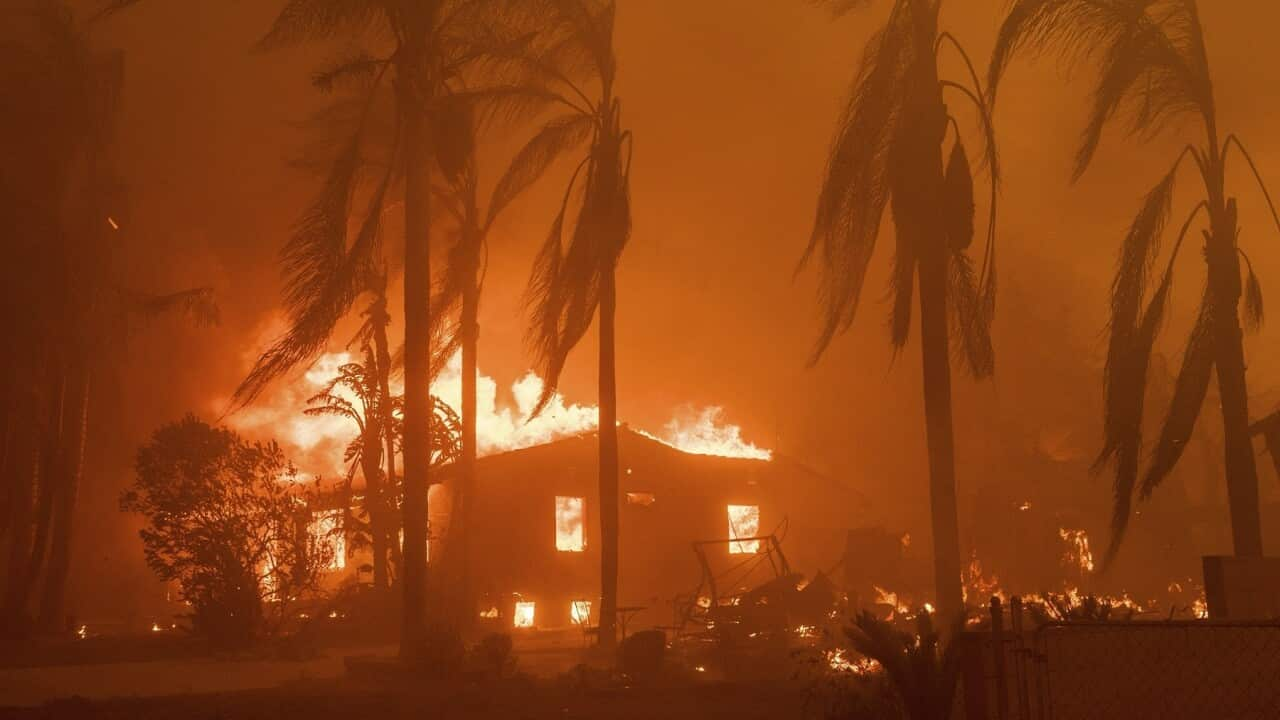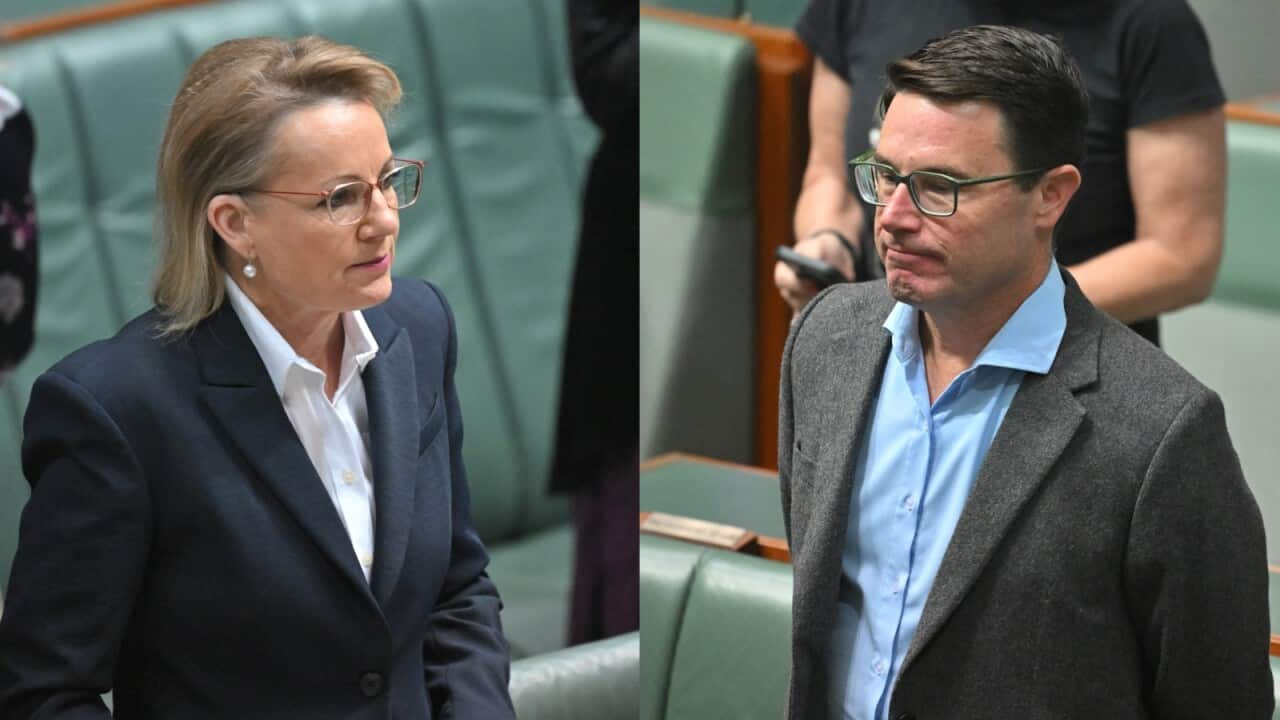Listen to Australian and world news, and follow trending topics with SBS News Podcasts.
TRANSCRIPT
In the past week or so, scientists have announced some stunning marine life discoveries.
In Italy, an EU-funded sea research mission found a large white coral reef containing important species and fossil traces, using a remotely operated submarine in the Dohrn Canyon, a deep marine valley just off the coastline of the southern Italian city of Naples.
In South America, scientists exploring the 4,000 feet deep Continental Margin in the ocean off Uruguay say they've uncovered a wealth of marine life in a reef that measured 1.3 square kilometres - which is more than 180 FIFA football fields.
Alvar Carranza is the Chief Scientist on the mission from the University of the Republic of Uruguay.
"I was... deeply moved by what I've seen. I've studied this stuff since 40 years; I become really emotional. I think most of the people (on the vessel) have the same feelings."
Andrea Rivera-Sosa is the Project and Outreach Manager at the Coral Reef Alliance.
Andrea says these discoveries remind us how diverse the reef ecosystem is across the world.
"Coral reefs are found throughout tropical oceans. We always think of the Great Barrier Reef as one of the largest reef systems, and it is, but we have reefs in many different parts of the world, in the Pacific Ocean - in the Indo-Pacific is where the reefs actually started. So that's the hotspot of biodiversity. And once we get to the Caribbean, we have less species but we still have thriving ecosystems."
This diversity is at the heart of a thriving ecosystem that's home to around a quarter of marine life, and which also has an economic impact, generating billions of dollars in tourism and recreational activities.
A notable example is the world's biggest reef system - the Great Barrier Reef in Queensland - but Australian Institute of Marine Science Fish Ecologist Dr Daniela Ceccarelli says a 2025 survey has established the Reef has experienced the largest decline of coral cover since 1986.
"We've seen the coral go up and down over the 39 years that we've been monitoring. But in the last 15 years, these changes have been bigger than ever before."
A second separate report has confirmed these changes are part of a disturbing worldwide trend.
The report - called Global Tipping Points - has been prepared by 160 researchers to synthesise groundbreaking climate science, ahead of the COP30 meeting in Brazil in November.
Lead coauthor Tim Lenton, from the University of Exeter, says the report has confirmed that the last two years were earth's warmest on record, with marine heatwaves that stressed a huge proportion of the world's reefs to the point of bleaching and, in some cases, death.
"We've seen an unprecedented coral bleaching event hit 80 percent of the world's low latitude reefs."
The reason for that is a rise in global temperatures, which are already 1.3 to 1.4 degrees Celsius above the pre-industrial average, according to data from UN and EU science agencies.
Tim Lenton says that in their view - the changes to the reef systems are a major signal that global warming is crossing dangerous thresholds sooner than expected.
"We've become clearer that we've passed the tipping point for the dieback of perhaps the majority of tropical coral reefs."
Tim Lenton says the scale and pace of the reef changes mean they fear an almost irreversible die-off of these crucial ecosystems.
“This is the overall trend. For the last 25 years the more science we've done to assess climate tipping point risks, the bigger those risks look to be in the sense that the temperature at which we think the tipping points could be crossed keeps getting brought down. As we push the temperature up and as we study what the impacts would be more, we uncover more reasons for concern, to put it politely."
Alvar Carranza says the deep sea corals and the marine life discovered off Uruguay appear to have avoided the bleaching events which have devastated reefs in shallower waters.
"The corals worldwide are suffering, but mostly the shallow water ones due to coral bleaching that is caused by a series of environmental stress... My impression is that... the ecosystem is in a relatively good condition."
Tim Lenton is among those who want it to stay that way.
He says there are positive signs when it comes to phasing out the fossil fuels most responsible for climate change, with renewables now accounting for more electricity generation than coal this year for the first time.
But he says for corals to recover, the world would need to drastically ramp up climate action to reverse temperatures back down to just one degree above the pre-industrial average.
Andrea Rivera-Sosa says coral reefs can be restored through technology, with techniques that include young coral being taken from the wild to be grown in a lab and replanted later.
But she says that is no substitute for stronger regulations on reducing greenhouse gas emissions.
"The countries that are most affected, like the small island states, are all on board. But we need the larger countries that produce a lot of these greenhouse emissions to also support and create policies to lessen their impact. Because it's all going to not just impact reefs and ecosystems, it's an impact to the whole population."
